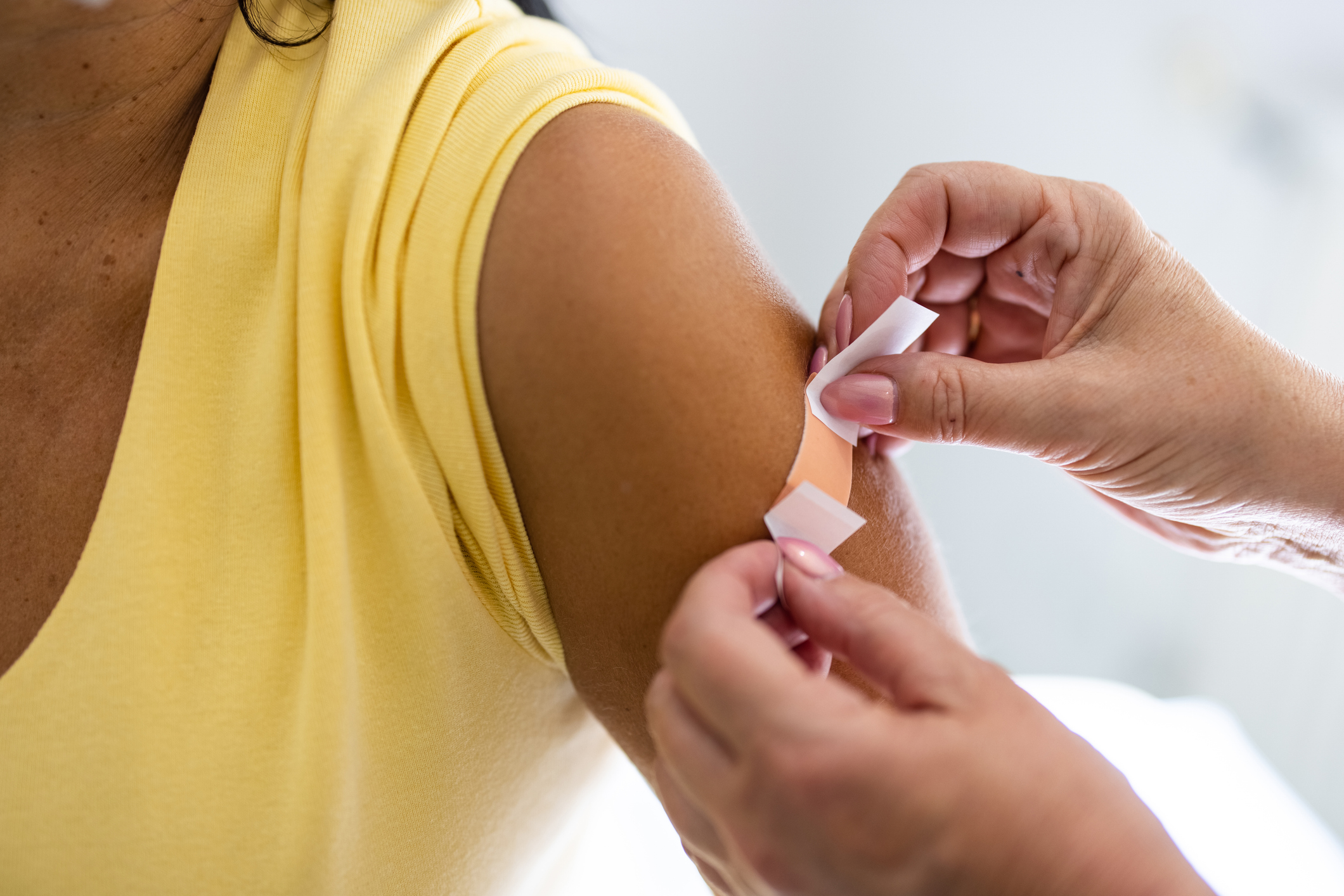The U.S. Centers for Disease Control and Prevention (CDC) is no longer recommending the COVID-19 vaccine for pregnant women and healthy children, the U.S. Secretary of Health and Human Services (HHS) Robert F. Kennedy Jr. announced in a video on his X account on May 27. “We’re now one step closer to realizing President Trump’s promise to Make American Healthy Again,” said Kennedy, who was flanked by Dr. Martin Makary, commissioner of the Food and Drug Administration (FDA), and Dr. Jay Bhattacharya, head of the National Institutes of Health.
[time-brightcove not-tgx=”true”]
The announcement reverses previous CDC advice. At the time of the announcement, the CDC’s webpage still contained its previous recommendation that everyone ages six months and older get vaccinated, and that “getting the 2024-2025 COVID-19 vaccine is especially important if you are pregnant, breastfeeding, trying to get pregnant, or might become pregnant in the future.”
Public-health experts immediately pushed back against the announcement. “Despite the change in recommendations from HHS, the science has not changed,” said Dr. Steven Fleischman, president of the American College of Obstetricians and Gynecologists, in a press statement. “It is very clear that COVID infection during pregnancy can be catastrophic and lead to major disability, and it can cause devastating consequences for families. The COVID vaccine is safe during pregnancy and vaccination can protect our patients and their infants.”
The makers of the most-administered COVID-19 vaccines—Pfizer-BioNTech and Moderna—did not immediately respond to requests for comment. But in response to the FDA’s other recent restriction of COVID-19 vaccine eligibility, Pfizer said it “[stood] by the science behind the Pfizer-BioNTech COVID-19 vaccine and continue to believe that broad vaccination programs are an essential tool for helping to prevent COVID-19 associated hospitalizations and severe disease, including death,” while Moderna said it “remain[ed] committed to working with the Agency to provide the data they need to ensure access for Americans.”
Here’s what to know about the unusual reversal in guidance.
How do decisions like this typically get made?
In the U.S., the FDA approves vaccines after reviewing studies on their safety and efficacy, and the CDC makes recommendations about who should be vaccinated and when, based on advice from an advisory committee of experts. It’s not clear whether that committee was consulted before Kennedy made the change; TIME contacted several members, and one declined to comment while others did not immediately respond for comment. “This decision bypasses a long-established, evidence-based process used to ensure vaccine safety and ignores the expertise of independent medical experts, including members of the CDC committees who are examining the evidence regarding the vaccine to make recommendations for the fall,” said Dr. Sean O’Leary, chair of the American Academy of Pediatrics Committee on Infectious Diseases in a statement to TIME.
What the decision might mean for you
For the public, the decision could mean more obstacles to getting COVID-19 vaccines, and higher prices if they do manage to gain access. Insurers make decisions about which shots to cover based on CDC recommendations—in particular for children—and if the COVID-19 vaccine is no longer part of CDC’s recommended immunizations, insurers could stop covering them, forcing parents who wish to vaccinate their children to pay out of pocket for the shots.
Read More: What the New ‘Make America Healthy Again’ Report Says About Children’s Health
Do kids and pregnant women still need COVID-19 vaccines?
During the pandemic, when the COVID-19 vaccines were first authorized and then approved, federal health officials focused on using the shots to control severe disease and lower hospitalizations and deaths—not prevent infection. Kennedy, who has long been a skeptic of vaccines in general and continues to openly question their safety, and his health officials have publicly discussed whether the same recommendations for COVID-19 vaccines are still relevant today, when more people have developed immunity to the virus either from repeated vaccinations, infections, or both. A week before this announcement, the FDA said it would limit COVID-19 vaccine approvals to those at highest risk of severe disease, and require additional studies on healthier people to confirm the shots’ safety and effectiveness.
Still, some infectious diseases experts note that in the U.S., during the peak of the latest winter respiratory disease season, just over 400,000 people were hospitalized with COVID-19, and several hundred people died each week. Those most vulnerable to complications that send them to the hospital were older people, those with weakened immune systems, and those who were pregnant. Given the potential risk of Long COVID and some of the still unknown long-term effects of recovering from an infection, the CDC still advises that “getting a COVID-19 vaccine is a safer, more reliable way to build protection than getting sick with COVID-19.”
That’s especially true for pregnant women, who may also pass on the protection they receive from getting vaccinated to their newborns in the first six months, before the infants can get immunized. “By removing the recommendation, the decision could strip families of choice,” said O’Leary. “What is clear is that pregnant women, infants and young children are at higher risk of hospitalization from COVID, and the safety of the COVID vaccine has been widely demonstrated.”

